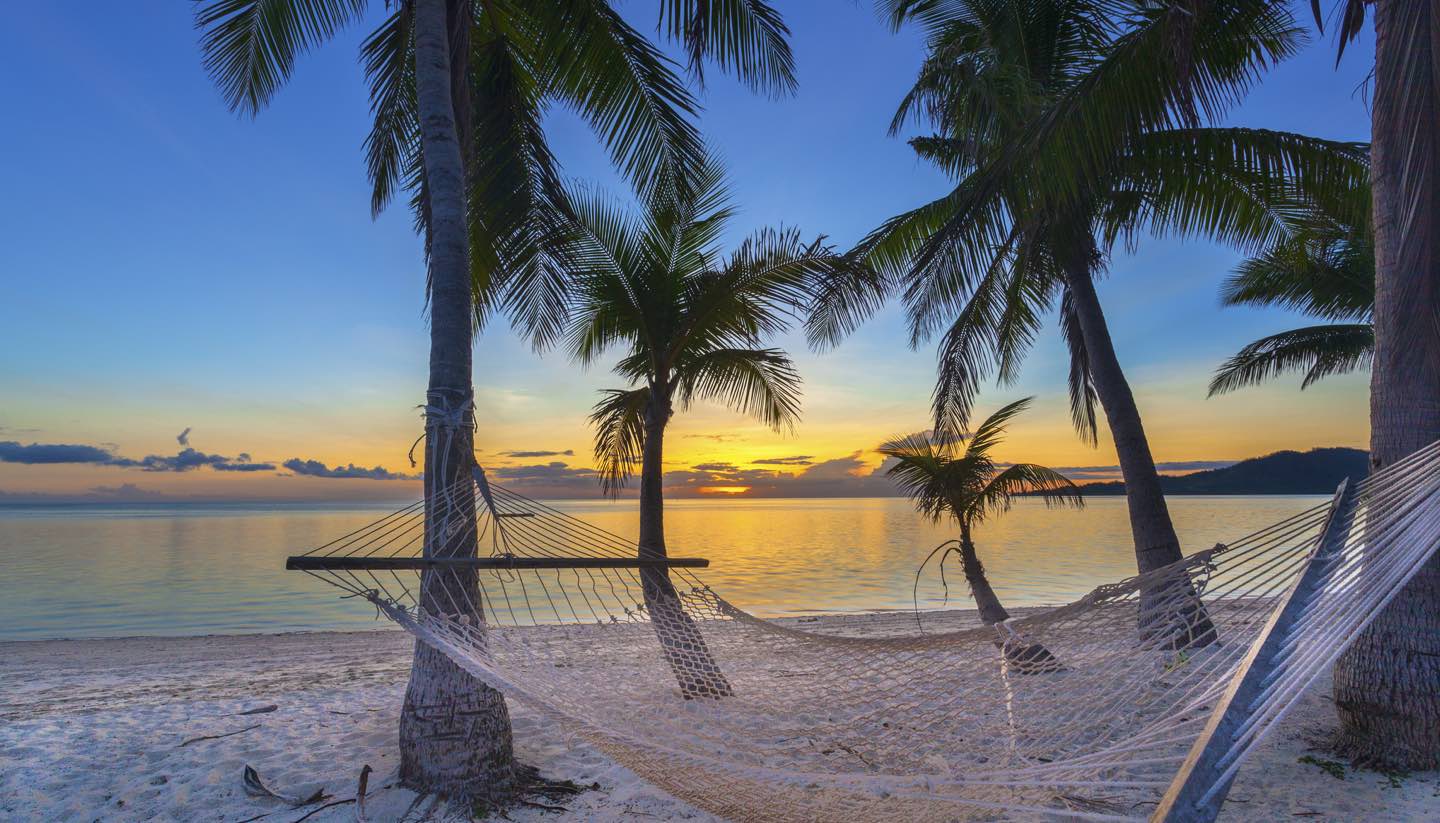Fiji History, Language and Culture
History of Fiji
Fiji has come a long way since the days of being referred to as the ‘Cannibal Isles’ by the European explorers who sailed their seas. Back then, mariners carefully avoided its shores because of its fierce warriors and treacherous waters.
The first inhabitants came from Melanesia, some 3,500 years ago, and established a hierarchical society based on clans. Little is known of the islanders’ history before the arrival of Europeans in the mid-17th century. The establishment of plantations destabilised the economy resulting in serious friction between the Fijians and Europeans.
In 1874, Fiji became a British colony. Large numbers of workers from India were imported to develop a plantation economy, accounting for the islands’ present ethnic mix. After gaining independence in 1970, the moderate conservative Alliance Party governed without interruption. However, Fiji’s political situation was to be anything but stable, with friction between ethnic Fijians and Indo-Fijians dominating politics over the last few decades and resulting in several military coups over the last 30 years. In 1987, a republic was declared following a coup and after another in 2006 Fiji’s then-president, President Ratu Josefa Iloilo suspended the constitution and appointed himself head of state in early 2009.
Later that year, Fiji’s failure to hold democratic elections saw the country become the first nation to be expelled from the Pacific Islands Forum; a few months later, Fiji was suspended from the Commonwealth of Nations because Prime Minister Frank Bainimarama refused to hold elections by 2010.
After years of delays a new Constitution was enacted and elections were finally held in September 2014 with Bainimarama’s FijiFirst party winning a resounding victory with 59.2 per cent of the vote as Fiji was re-admitted to the Commonwealth as well as the Pacific Islands Forum.
Perhaps not surprisingly Fiji has relatively large armed forces – almost 4,000 active soldiers and sailors with a further 6,000 reservists – and has contributed to several UN peacekeeping missions.
Did you know?
• Before 2012, the traditional Cibi war dance was performed by the Fijian national rugby team before each match. After it was decided the Cibi was a celebration of victory it was replaced by the new Bole war cry – an acceptance of a challenge.
• Fiji has an estimated 333 islands, 110 of which are permanently inhabited. Fiji also has over 500 islets.
• The Meke dance is an indigenous art form and usually incorporates men’s and the women’s dances to mark an important event. Some Mekes are generations old.
Fiji Culture
Religion in Fiji
Methodist and Hindu with Roman Catholic and Muslim minorities. The 1997 Constitution of Fiji guarantees freedom of religion.
Social Conventions in Fiji
Fijians are a very welcoming people and visitors often experience local hospitality. Informal casual wear is generally acceptable.
Tips for visiting villages: Before visiting on your own, it is customary to purchase a bundle of unpounded yaqona (kava root) - the traditional sevusevu (gift). When approaching the village, visitors should not enter immediately but wait until greeted. They will then be taken to the chief or turaga ni koro (headman), to whom the kava should be offered. Visitors who are accepted by the chief will be assigned a guide and host.
Once inside the village, please also note the following: visitors should dress modestly and not wear shorts or hats, and women should not have their shoulders bare; shoes, hats and sunglasses should always be taken off when entering someone's house or any other village building; visitors should speak softly and not raise their voices too much as this may be interpreted as expressing anger; visitors should avoid touching someone’s head (children included) as it’s seen as insulting; visitors should show respect but be cautious about praise as Fijians will feel obliged to make a gift of an object if visitors show too much liking for it; Fijians will always, out of custom, ask visitors to stay or eat with them; visitors who spend a night in the village should reward their host with a useful gift of similar value for each member of the party; money is acceptable if it's offered as a goodbye sevusevu and not direct payment.
Language in Fiji
The principal languages are Fijian and Fiji Hindi (known locally as Hindustani). English is widely spoken and is also taught in schools.


